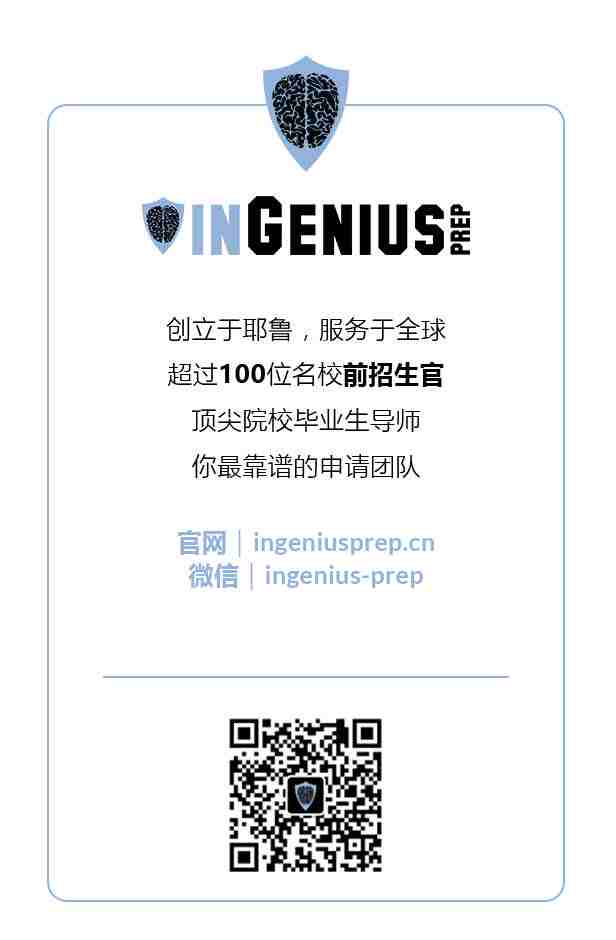申请哈佛大学的新方式?哈佛校园媒体评论|中英


本文翻译自哈佛校报The Harvard Crimson,作者Daphne C. Thompson。
哈佛加入联盟,提供“通用申请”的替代方式
哈佛将加入全美80多个大学,接受一个新的大学申请的平台。这个大学申请平台比起通用申请的一大特点是,更加个性化。
这么多大学的联合起来,组成一个名为“资源、承受力和成功的联盟”。他们在周一公布该联盟会从2016年1月起,为广大申请者提供一个拥有升学规划工具的新平台。通过新的平台,学生可以建立线上作品集,收纳他们在整个高中学习过程中的作品。并且,学生们可以在上高中的时候,分享他们的部分作品给升学顾问、老师,和招生官们,请他们提供反馈意见。
然后从明年夏天开始,很多成员学校(包括哈佛)将开始接受从这个新的平台提交的申请。
哈佛目前接受通用申请和万能大学申请。不过根据一份机密提案请求,哈佛从2014年5月甚至更早就已经开始在调研第三种新的申请平台。根据联盟网站,联盟成员学校(包括所有的常青藤萌校)必须在近六年内拥有高于70%的毕业率,并展现出奖学金资助的承诺。
哈佛负责招生及助学金的院长,67届校友William R. Fitzsimmons,曾在二月时就和本报记者提过正在酝酿中的新平台。他说招生办正在为使大学申请过程更灵活而作出一系列的努力。
Fitzsimmons说:“我们不想将大家束缚到条条框框中,或太过直接地告诉大家应该用什么样的方式去呈现自己。我们尊重每个人的选择。”
联盟的新闻发布会上,大力宣扬了新的平台从高中一开始就强调对大学申请的准备,能够为来自低收入背景的学生带去好处。Fitzsimmons同样也说到哈佛的招生办尽量避免因为过于繁琐的申请程序,而给处于弱势的学生们造成太多压力。
“有些学生打两份工,还要帮助他们的兄弟姐妹,”他说,“我们不想给这些人因为申请程序深奥难懂而增添更多的升学压力。”
但是,不是每个人都觉得联盟的新申请方式会简化申请的程序。Parke P. Muth,弗吉尼亚大学的前招生副院长说,新的平台中作品集的功能,会使在高中后期才决定申请美国大学的国际学生陷入不利地位。他同时也担忧这个新的平台可能会使学生从高中一开始就发起“各种各样的军备竞赛”,让低年级的学生“因为要提交大量之前不曾考虑过的论文、项目、视频和推荐信,而很有压力。”
他说:“对于那些觉得这个新平台可能帮他们脱颖而出的人,可能到头来会发现这个新方式会比现存方式更复杂。”
David Mainiero, InGenius Prep的大学申请咨询总监说,他支持联盟申请的出发点,但是他觉得提供太多的申请方式会使得一些招生部门的工作量过大。
Mainiero说:“我认为这个项目看上去很棒,但是我更希望招生官的工作能够轻松一些,因为我觉得招生办已经是人手短缺了,任何增加他们工作量的方式,我可能不会特别赞同。”
哈佛加入联盟的决定,缘起于2013年通用申请系统的技术故障,导致很多学校推迟申请截止日期。Fitzsimmons说这进一步推动了对多种申请方式的需求。
Fitzsimmons说:“两年前当通用申请系统出现问题时,我们就意识到拥有一个替代的申请方式的重要性。让大家拥有多种申请大学的方式,总是一件好事。”
相关报道
点击标题查看原文
英文原文:
Harvard Joins Coalition To Offer Common App Alternative
Harvard will join more than 80 colleges and universities across the country in accepting a new college application platform that positions itself as a more individualized alternative to the Common Application.
The federation of colleges, which calls itself the Coalition for Access, Affordability, and Success, announced Monday that it will make an alternative platform with college planning tools available to prospective students in January 2016. Through the new portal, students can build online portfolios of their work throughout their high school careers, and they then may share parts of them with advisers, teachers, and admissions officers for feedback throughout high school.
Starting next summer, then, many member schools—including Harvard—will begin accepting applications through the new portal.
Harvard currently accepts the Common Application and the Universal College Application, but has been investigating the potential of a third platform since at least May 2014, according to a confidential proposal request. According to the coalition’s website, member schools—including all of the Ivy League—must have a graduation rate more than 70 percent within six years and demonstrate a commitment to financial aid.
Harvard’s dean of admissions and financial aid, William R. Fitzsimmons ’67, spoke with The Crimson about the then-nascent platform in February. He said the Admissions Office strives to make the College application process flexible enough to accommodate a range of strengths.
“We don’t want to force people to be in some little box or be too direct in telling you how you should present yourself,” Fitzsimmons said. “We respect people’s choices.”
The coalition’s press release touts the new platform’s potential to better engage students from disadvantaged backgrounds by emphasizing college preparation from the beginning of high school. Fitzsimmons, likewise, said Harvard’s Admissions Office tries not to burden disadvantaged students with an overly cumbersome application.
“It’s true that there are some people working two jobs, or supporting their siblings,” he said. “We don’t want to put more pressure on people by having them be involved in many arcane hoops that need to be jumped.”
Still, not everyone is convinced that the coalition’s new application will simplify the admissions process. Parke P. Muth, a former associate dean of admissions at the University of Virginia, said the new platform’s portfolio feature could disadvantage international students who may not plan to apply to U.S. schools until late into secondary school.
He also warned that the platform could create “an arms race of sorts” from the start of high school as younger students “feel pressure to submit papers, projects, videos, and recommendations in numbers unthought of before.”
“It could, for those who feel this might help them stand out, end up becoming a much more complicated process than what currently exists,” he said.
David Mainiero, the director of college counseling at InGenius Prep, said he supports the coalition application’s goals, but cautioned that offering too many application options might overburden some admissions departments.
“I think that this looks like a great program, but I would like admissions officers’ jobs to be easier because I think they’re already under-resourced,” Mainiero said. “Anything that adds to their workload, I wouldn’t necessarily be in favor of.”
Harvard’s decision to join the coalition comes after technical difficulties with the Common App in 2013 prompted a number of schools to push back their application deadlines, which Fitzsimmons said highlighted the need for multiple application methods.
“It became very important with us when there were problems with the Common App two years ago to have an alternative way to apply,” Fitzsimmons said. “It’s always a good thing to have various ways for people to apply to colleges.”
哈佛校报The Harvard Crimson采访引用InGenius Prep专家意见的文章(部分):《Harvard Joins Coalition To Offer Common App Alternative(哈佛加入联盟,提供通用申请之外的新方式)》点此查看《Harvard Acceptance Rate Will Continue To Drop, Experts Say(专家预测,哈佛录取率将继续下降)》点此查看《Applying Emotions to Applications (在申请中加入情绪)》《'Sneak Attack': Cheating on the SAT is Easy(‘偷袭’SAT作弊很容易)》《Despite Changes at Penn, Harvard Stands by 'No-Loan' Label(哈佛坚定‘无学生贷款’政策,不理宾大变革)》《The New SAT: Paradigm Shift or More of the Same?(新SAT改革:换汤不换药?)》点此查看

点击查看哥大前招生官上海讲座
↓↓↓
阅读原文 最新评论
推荐文章
作者最新文章
你可能感兴趣的文章
Copyright Disclaimer: The copyright of contents (including texts, images, videos and audios) posted above belong to the User who shared or the third-party website which the User shared from. If you found your copyright have been infringed, please send a DMCA takedown notice to [email protected]. For more detail of the source, please click on the button "Read Original Post" below. For other communications, please send to [email protected].
版权声明:以上内容为用户推荐收藏至CareerEngine平台,其内容(含文字、图片、视频、音频等)及知识版权均属用户或用户转发自的第三方网站,如涉嫌侵权,请通知[email protected]进行信息删除。如需查看信息来源,请点击“查看原文”。如需洽谈其它事宜,请联系[email protected]。
版权声明:以上内容为用户推荐收藏至CareerEngine平台,其内容(含文字、图片、视频、音频等)及知识版权均属用户或用户转发自的第三方网站,如涉嫌侵权,请通知[email protected]进行信息删除。如需查看信息来源,请点击“查看原文”。如需洽谈其它事宜,请联系[email protected]。